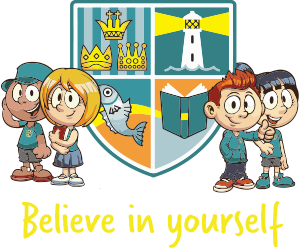Reading
At Whitehouse Primary School we have a systematic approach to the teaching of reading and use the RWInc programme. From reception onwards, children are taught to recognise and write letters and make links between letters (graphemes) and sounds (phonemes) in order to read words. Common words that cannot be sounded out are taught alongside the programme, in order to ensure children know these words by sight. These are referred to as red words. Children are assessed every half-term and placed in small groups at the appropriate level, to ensure that they make the maximum amount of progress. For more information on the Read Write Inc (RWInc) programme, please visit https://www.ruthmiskin.com/en/
All pupils in KS1 and KS2 read on a daily basis in a range of contexts; daily guided reading sessions, one-to-one reading sessions, Reading Pro sessions and the sharing of a class novel. We have a well-resourced library and children take quizzes on the books they read to check their understanding. Pupils are encouraged to take reading and library books home every evening and we ask families to listen to the child read at least three times a week.
Reading Help Video
Class Reader
Ethos
Story time at Whitehouse takes place daily and lasts for 15 minutes or more – this is particularly important as Reading to children is a statutory requirement of the National Curriculum.
Each class has a class story book that has been specifically chosen to engage and excite the children. This may, in some cases, be the one chosen for the book curriculum for their English lessons.
Some benefits of reading to children:
- improved imagination
- increased vocabulary
- greater listening skills
- enjoyment of books
- experience of other places, times and cultures
- moral issues
- improved writing
- internalising narrative patterns
- hearing good models of spoken English
Reading for Pleasure (RfP)
At Whitehouse we strive to develop a rich Reading for Pleasure atmosphere. We have worked hard to develop an ethos and an environment that excites, enthuses, inspires and values.
We aim to achieve a rich RfP atmosphere by providing:
- High quality texts with depth and interest in story, character, illustration, vocabulary, structure and subject matter
- A read aloud programme
- Teachers who are knowledgeable about children’s literature
- Creating a community of readers with opportunities to share responses and opinions
- Planning for talking about books and stories, providing structures within which to do this
- Understanding the importance of illustration in reading both in terms of creating a text and responding to a text
- Using drama and role-play to help children to understand and access texts
- Working with authors and author/illustrators to understand the process of creating books
- Using literature beyond the literacy lesson – cross-curricular planning with quality literature as the starting point
In EY and KS1 children take home a RfP suitcase on a weekly basis. Parents and children are encouraged to snuggle up and share a story together along with a hot chocolate and some cookies. Many parents share these experiences via photographs on Seesaw.
Writing
The development of writing skills is a key priority for the school. All classes follow Pie Corbett’s ‘Talk4Write’ ethos as the primary approach to writing. Literacy and Language covers a variety of reading and writing skills using exciting and engaging texts as a starting point. Within these lessons pupils are taught to recognise the features of different texts and practise the relevant skills. We assess writing at the end of each unit of work, through Hot Task writing and children are given the opportunity to evaluate their own progress and identify areas for development.
For more information on the Talk4Write programme please visit https://www.talk4writing.co.uk/
Writing skills are further developed through cross-curricular writing across the curriculum. Children are expected to transfer skills learnt in English to other subject areas.
Handwriting
We take pride in the presentation of our work at Whitehouse and children are taught to develop their handwriting skills through the use ‘Penpals’, a handwriting scheme, to ensure there is a consistent approach throughout the school.
Phonics
Expectations of progress
Our goal is for children to:
- Work out unfamiliar words quickly – including new vocabulary and names.
- Read familiar words speedily – that is, words they have been taught.
- Read texts - including the words they have been taught – fluently.
Please note: these are the expectations for the lowest 20% of children. Other children should be well in advance of this.
All children should achieve these expectations, if they have followed the programme from Reception.
| YR children can: | Y1 children can: | Y2 children can: | |
|---|---|---|---|
| End of Autumn 1 | Read single-letter Set 1 sounds | Read Purple Storybooks; read some Set 2 sounds | Read Blue Storybooks |
| End of Autumn term | Read all Set 1 sounds; blend sounds into words orally | Read Pink Storybooks; read all Set 2 sounds | Read Blue Storybooks with increasing fluency and comprehension |
| End of Spring 1 | Blend sounds to read words; read short Ditty stories | Read Orange Storybooks; read some Set 3 sounds | Read Grey Storybooks |
| End of Spring term | Read Red Storybooks | Read Yellow Storybooks | Read Grey Storybooks with fluency and comprehension |
| End of Summer 1 | Read Green Storybooks; read some Set 2 sounds | Read Yellow Storybooks; read all of Set 3 sounds | Access RWI Comprehension and Spelling programmes |
| End of Summer term | Read Green or Purple Storybooks | Read Blue Storybooks | Access RWI Comprehension and Spelling programmes |
Speaking and Listening
The development of speaking and listening skills is essential to learning across the curriculum. Consequently, opportunities for paired and group discussions, focused speaking activities and drama-based tasks are built into most lessons.
Grammar
Grammar is now assessed at the end of Key Stage 2 with a formal SATs paper and is an important part of English at Whitehouse. It is taught daily and children have the opportunity to practise their skills through both written and oral activities.
Useful websites
Further information on the statutory tuition of English.
https://www.ruthmiskin.com/en/programmes/phonics/ RWInc Phonics programme
PHONICS - Read Write Inc (RWInc) (Click the icon)Read Write Inc (RWInc) - Learning to read through phonics scheme. Further information about RWInc can be found on the Dfe website





